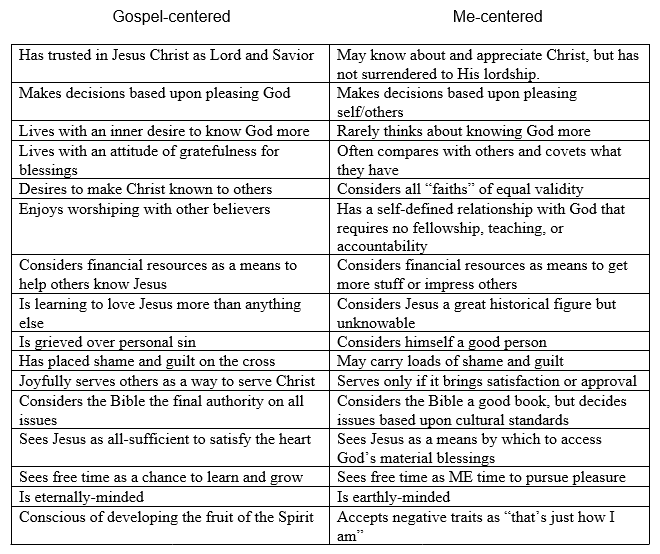Answer
The word gospel simply means “good news.” The gospel of Jesus Christ is the good news that sinful people can be made right with God by repenting of their sin and calling upon Jesus as Savior and Lord (Acts 2:21; Romans 10:9–10). So to be gospel-centered is to be focused on the life-changing good news of God in Christ. We often speak of ministries that evangelize the lost as being “gospel-centered.” Books and curricula and programs can be gospel-centered; songs can relate gospel-centered lyrics; people can live gospel-centered lives.
In Corinth, Paul’s ministry was decidedly gospel-centered: “I resolved to know nothing while I was with you except Jesus Christ and him crucified” (1 Corinthians 2:2). His testimony to the churches of Galatia was the same: “May I never boast except in the cross of our Lord Jesus Christ, through which the world has been crucified to me, and I to the world” (Galatians 6:14). Sharing the gospel was Paul’s top priority, and he felt a divine urgency to preach it to everyone: “When I preach the gospel, I cannot boast, since I am compelled to preach. Woe to me if I do not preach the gospel!” (1 Corinthians 9:16).
When we speak of a person who lives a gospel-centered life, we mean that person has believed the gospel of Jesus Christ and has made the death and resurrection of Christ the very foundation of his or her life. A true Christian must be a gospel-centered person (Luke 14:26–27) because Christianity is a lifestyle, not an activity. Knowing about Christ does not make one a Christian; knowing Christ does.
Every human life has a center, that which motivates all decisions. Basically, we are either gospel-centered, or we are me-centered. Even people who seem to be kind and good can be me-centered if their motivation is not to glorify God (see 1 Corinthians 10:31). It helps to define the difference between a gospel-centered life and any other kind of life by looking at a comparison chart:

A gospel-centered life is a Jesus-centered life. When we come to Christ by grace through faith (Ephesians 2:8–9), we do more than secure our eternal destination. Salvation is a divine paradox: a free gift that costs us everything we are (see Luke 14:33). Becoming a child of God changes us from the inside out (1 Corinthians 5:17). When the Holy Spirit moves into a repentant heart, He begins to change our desires, our outlook, our motivations, and our opinions (1 Corinthians 6:19–20). Hebrews 12:28–29 says that “our God is a consuming fire.” The fire of His presence burns away dross. It burns away that which is inferior and unworthy.
A gospel-centered life is an outward-looking life that is ever ready to share the good news with others. The feet are “fitted with the readiness that comes from the gospel of peace” (Ephesians 6:15). The heart reveres Christ as Lord and is “prepared to give an answer to everyone who asks you to give the reason for the hope that you have” (1 Peter 3:15). A gospel-centered ministry is a ministry of reconciliation whose goal is to share the news “that God was reconciling the world to himself in Christ” (2 Corinthians 5:19).
Many people have religion-centered lives, benevolence-centered lives, or activity-centered lives. They may even have spiritual lives, but if they have not bowed the knee to the lordship of Jesus, that spirituality will lead them to destruction (1 John 4:1). Only a gospel-centered life can please God (Romans 8:8; 1 Thessalonians 2:4) because it is only through Jesus Christ and His gospel that we can enter into His presence (John 14:6).


